secularism
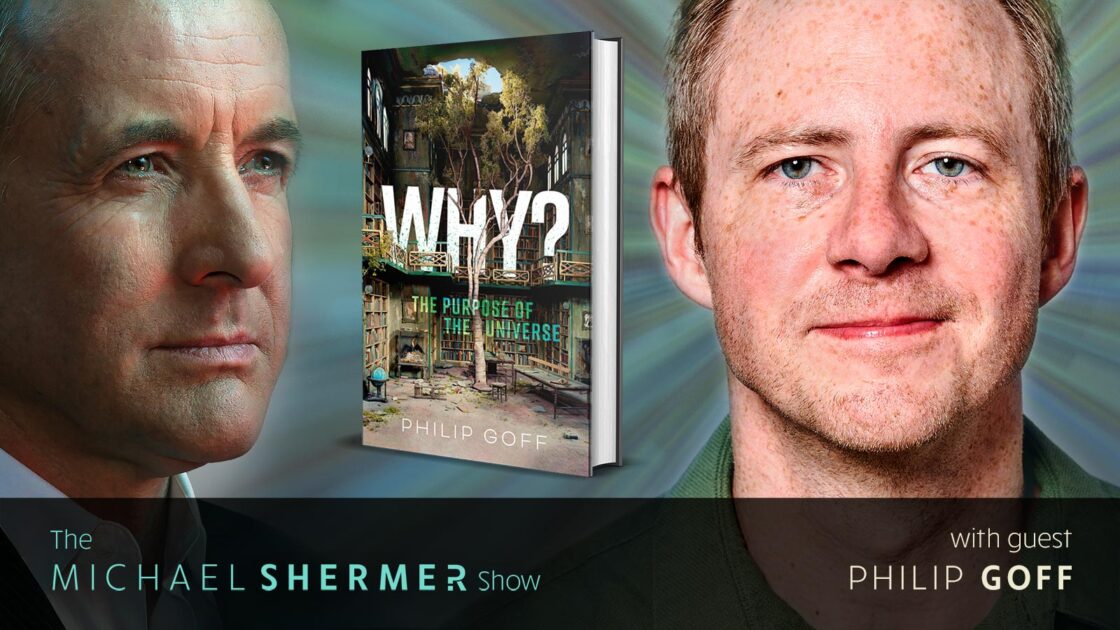
Shermer and Goff discuss: • living in a computer simulation • the universe itself as a conscious mind • cosmic purpose • fine-tuning • free will • consciousness (the ground of all being?) • morality and the Is-Ought Fallacy • What is my purpose in life? • religious vs. secular answers to the purpose question • awe and how to be spiritual but not religious.
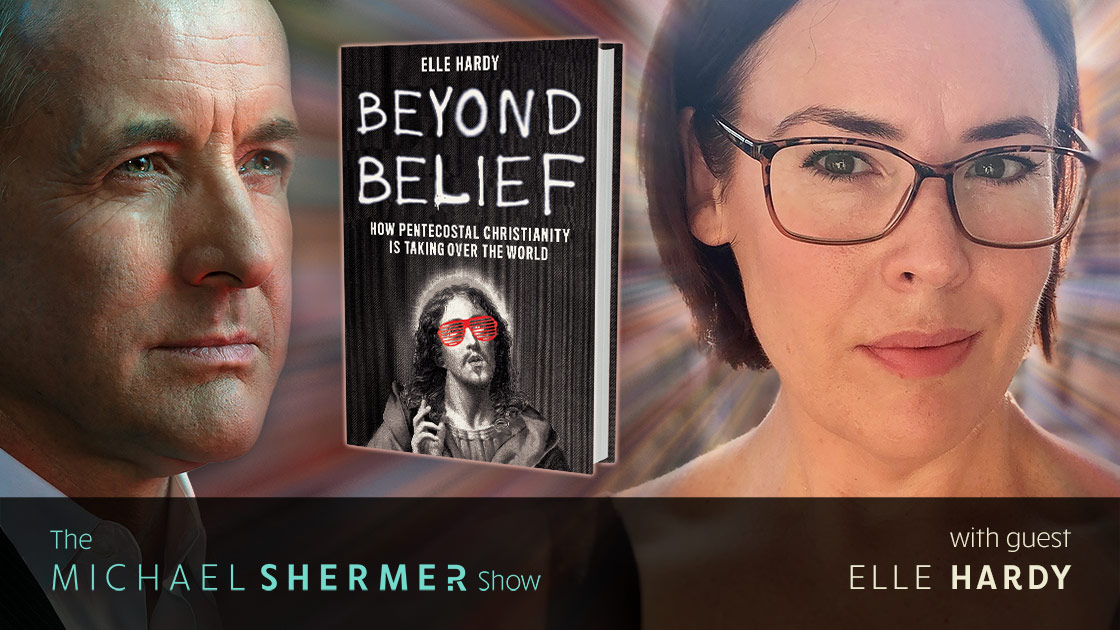
Shermer and Hardy discuss: Hardy’s religious journey (raised Catholic, now agnostic) • origin of Pentecostalism and its biblical basis Pentecostalism in Korea North and South, and Israel • the structure of the Pentecostal church and how it differs from other churches • Seven Mountain Mandate • how religions grow • pentecostalism and politics • the psychology of the believer • dispensationalism and the Rapture • prophecy • glossolalia • snake handling • eschatology and end-times theology • sin and redemption • prostitution • Jordan Peterson and…
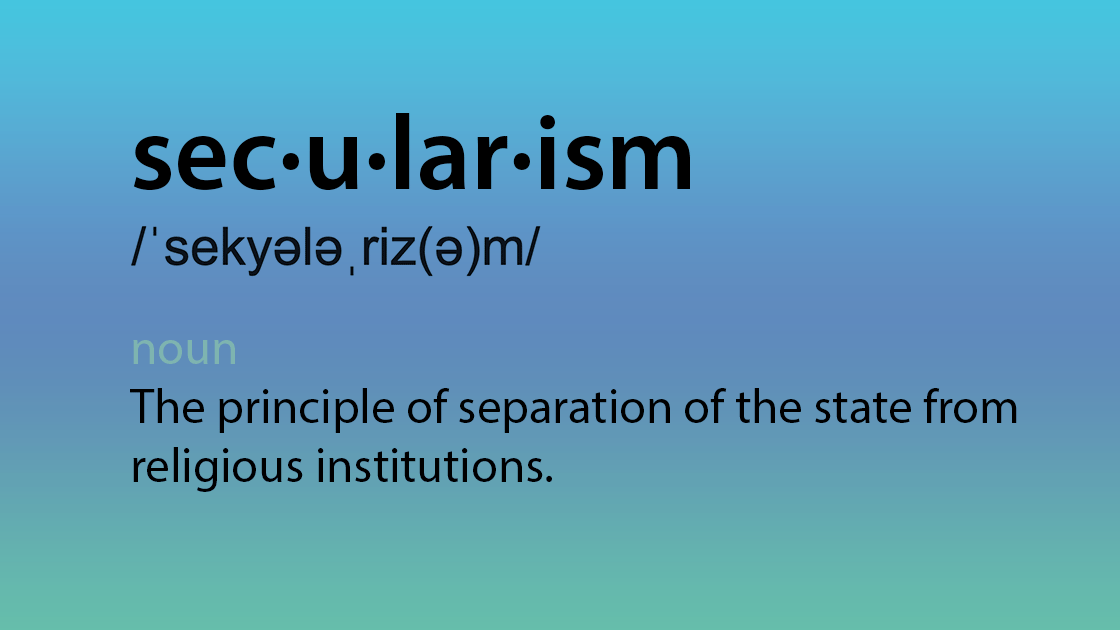
That the world in general and the United States in particular are becoming ever more secularized is no longer in dispute. The data are clear. The rise of the nones (no religious affiliation) is real. The hard question to answer is why. In this deep analysis of the many causal factors at work readers will learn about the long term trends that are likely to continue.
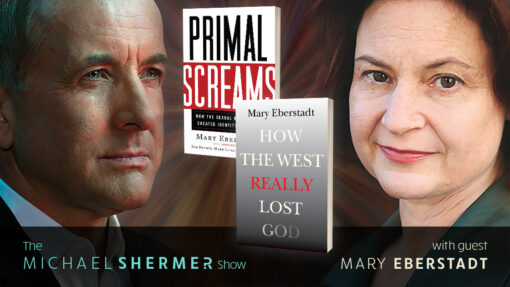
In episode 215, Michael Shermer speaks with Mary Eberstadt about the decline of religion in which Eberstadt presents her alternative theory for the “secularization thesis” (that the undermining of the family has undermined Christianity itself). In the second half, they discuss the rise of identity politics and how identitarians track and expose the ideologically impure, as people face the consequences of their rancor.
In episode 215, Michael Shermer speaks with Mary Eberstadt about the decline of religion in which Eberstadt presents her alternative theory for the “secularization thesis” (that the undermining of the family has undermined Christianity itself). In the second half, they discuss the rise of identity politics and how identitarians track and expose the ideologically impure, as people face the consequences of their rancor.
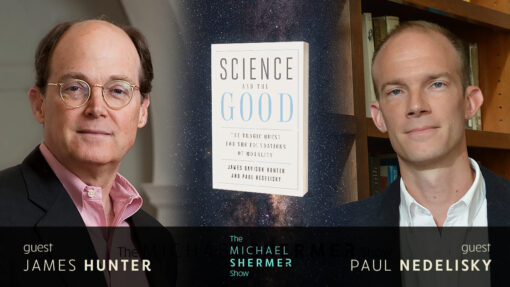
Professional philosophers James Hunter and Paul Nedelisky trace the origins and development of the centuries-long, passionate, but ultimately “failed quest” to discover a scientific foundation for morality. The conversation takes a decidedly interesting turn when Drs. Hunter and Nedelisky revealed, unbeknownst to Dr. Shermer, that they are both theists and that their Christian worldview informs their thinking on moral issues.
In episode 178 of Michael Shermer’s podcast, Michael speaks with philosophers James Hunter and Paul Nedelisky about religious vs. secular morality and their book Science and the Good: The Tragic Quest for the Foundations of Morality.
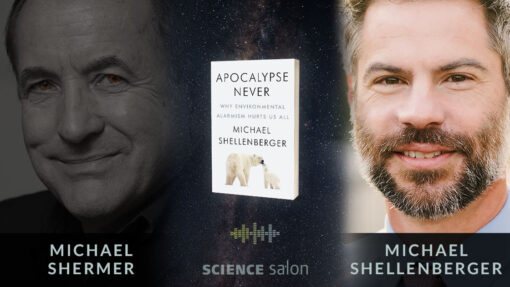
Shermer and Shellenberger discuss: the rise of apocalyptic environmentalism • Environmental Humanism as a replacement worldview • problems and shortcomings of climate computer models • how much warmer it’s going to get, what the consequences will be, and what we can do about it? (hint: nuclear), why people fear nuclear power • renewables, solar, wind, geothermal, and why they are not nearly as efficient as nuclear, and more…
In Science Salon # 128, Michael Shermer speaks with Michael Shellenberger about his new book Apocalypse Never: Why Environmental Alarmism Hurts Us All. PLUS, save 40% on new digital subscription via PocketMags.com, now thru August 15, 2020.
In Science Salon # 82, Michael Shermer speaks with Phil Zuckerman about his book that launches today — What it Means to be Moral: Why Religion is Not Necessary for Living an Ethical Life. PLUS, the latest issue of Skeptic magazine (24.3) launches today in print and digital editions.
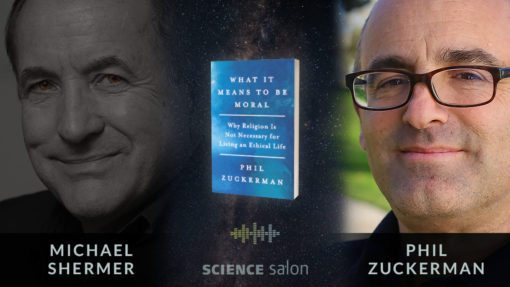
By deconstructing religious arguments for God-based morality and guiding readers through the premises and promises of secular morality, Zuckerman argues that the major challenges facing the world today―from climate change and growing inequality to religious support for unethical political policies to gun violence and terrorism―are best approached from a nonreligious ethical framework.
In Science Salon # 38, Michael Shermer and Hebrew University historian and best-selling author (Sapiens, Homo Deus), Dr. Yuval Noah Harari, discuss the central ideas of his new book, 21 Lessons for the 21st Century.
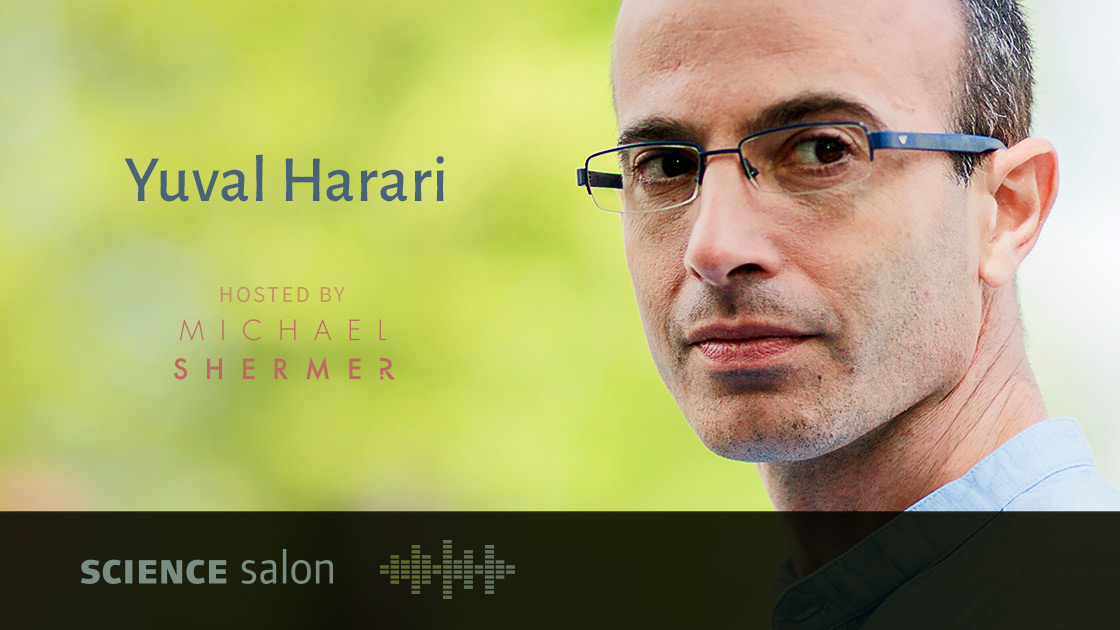
In this dialogue with one of the most interesting minds of our time, the Hebrew University historian and best-selling author (Sapiens, Homo Deus), Dr. Yuval Noah Harari, he and Dr. Shermer discuss: history, work, liberty, equality, community, civilization, nationalism, religion, immigration, terrorism, war, humility, God, secularism, ignorance, justice, post-truth, science fiction, education, meaning, meditation, and more…
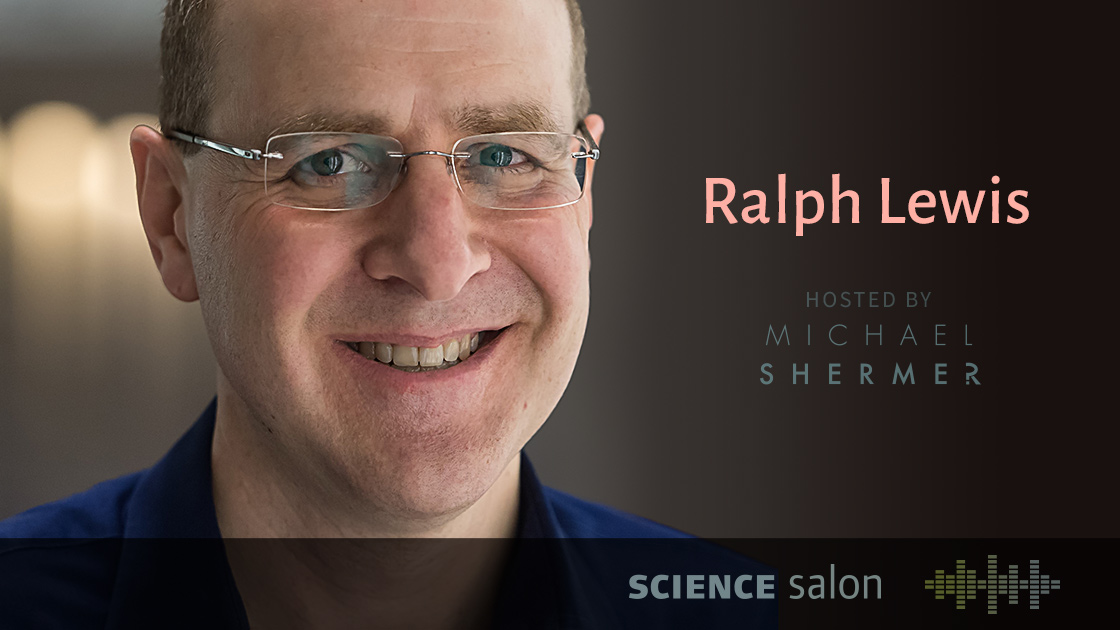
In Science Salon # 30, Michael Shermer talks with University of Toronto psychiatrist Dr. Ralph Lewis, the author of the new book Finding Purpose in a Godless World: Why We Care Even if the Universe Doesn’t about helping cancer patients (and others facing death) to cope without depending on religion.

Have you ever questioned your faith, or worried about what life would be like without it, or do you know someone who has? Have you ever wrestled with issues of how to replace religious practices and ideas with secular ones? In this week’s eSkeptic, Donald Prothero reviews Living the Secular Life: New Answers to Old Questions: a book by Phil Zuckerman that addresses these topics.
Drawing on innovative sociological research, Dr. Zuckerman—a Pitzer College professor who founded a Department of Secular Studies, the first of its kind—illuminates this demographic shift with the moral convictions that govern secular individuals, offering crucial information for the religious and nonreligious alike. Living the Secular Life reveals that, despite opinions to the contrary, nonreligious Americans possess a unique moral code that allows them to effectively navigate the complexities of modern life.
In an article entitled “Nontheism and Feminism: Why the Disconnect?” in the latest issue of Free Inquiry magazine, author and journalist Ophelia Benson targets Michael Shermer as the embodiment of misogyny. In this week’s eSkeptic, Michael Shermer publicly responds to Ophelia Benson.




















